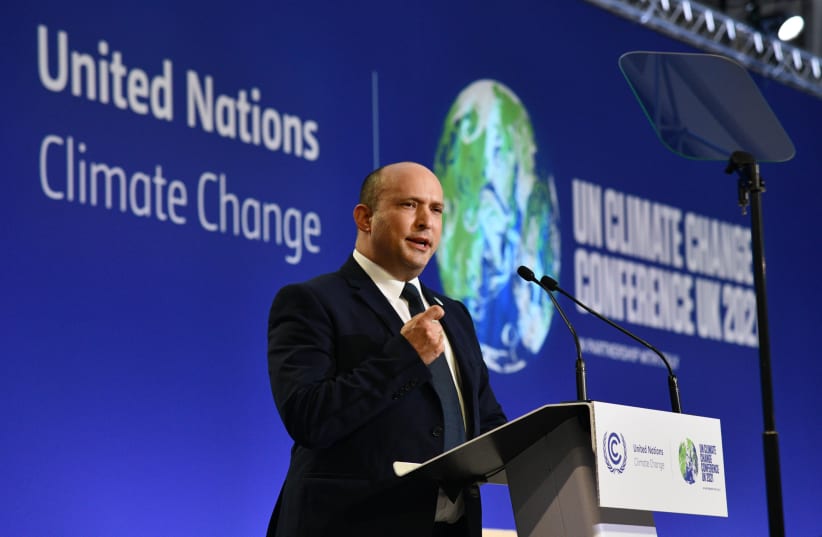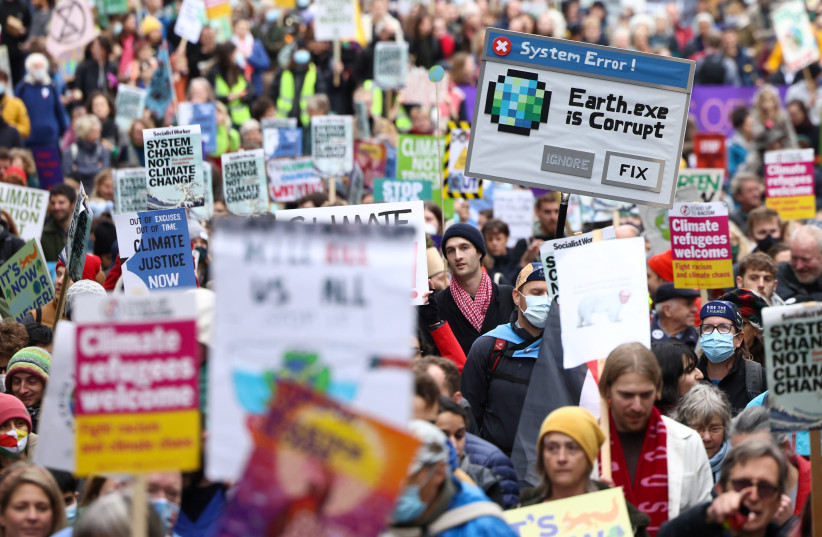The 2021 UN Climate Change Conference (COP26) drew to an end on Saturday evening after two weeks of talks, deals, and negotiations between different delegations.
Negotiations around the Glasgow Climate Pact concluded in disappointment for many, after last-minute objections raised by China and India meant that instead of promising to “phase out” the use of coal, the deal now asks countries to commit only to “phasing down.”
COP26 President Alok Sharma was seen fighting back tears as he announced the changes made to the deal, saying that he “apologizes for the way this process has unfolded, and am deeply sorry.”
The impact – or lack thereof – of the amended climate pact remains to be seen, but Israeli climate experts and activists have voiced their concerns and cautious hopes.
“The climate deal signed yesterday reveals the real priorities of our representatives,” said environmental activist and artist Carmel Horowitz. “Economic growth and the constant pursuit of comfort is prioritized over the climatic and ecological balance that allows us to even sustain these pursuits – securing our future will only come after. The lives of millions are easy to compromise, but the economic growth that comes in a constant form of the over-exploitation and destruction of nature, on which we depend, they will not give up.”
Horowitz voiced his disagreement over the decision to remove the clause calling for all countries to phase out the use of coal from the climate pact at the request of less economically developed countries,” Horowitz said. “Because the endless ‘growth at the expense of resources’ paradigm is universal, poor countries also strive to utilize natural resources as much as possible, and so have put this first in their priorities. This is a problem that has no easy solution, but it is easy to understand that richer countries should also give up more of their polluting pleasures [than poorer countries] for the sake of everyone’s future.”
Israel’s main delegation at COP26 was only present for several days at the beginning of the conference, but the Glasgow Climate Pact will be expected to influence Israel’s approach to climate change nevertheless.
Horowitz is doubtful, however, about both Israel’s current approach to the climate crisis and about the country’s place in leading the way in environmentalism.
“Unfortunately, [Prime Minister Naftali] Bennett’s speech illustrated that he certainly does not understand the subject [of climate change] while relying on technology as a solution, technology whose capabilities are more reminiscent of a miracle than of reality. Israel as a country chooses not to present leadership and innovation on the issue of climate. Therefore, the decisions that were made in Glasgow only show Israel that it can continue to falter because everyone is faltering.
“Only when a courageous leader comes forward to say that it is our responsibility to change our priorities, like those of us who understand the crisis situation are saying, and that not doing so will cost millions in human lives – only then (and only if this leader can fulfill his words) can we make a real difference. Unfortunately, at the moment there is no leader who is even willing to say that.”
The Environment and Climate Change portal is produced in cooperation with the Goldman Sonnenfeldt School of Sustainability and Climate Change at Ben-Gurion University of the Negev. The Jerusalem Post maintains all editorial decisions related to the content.

